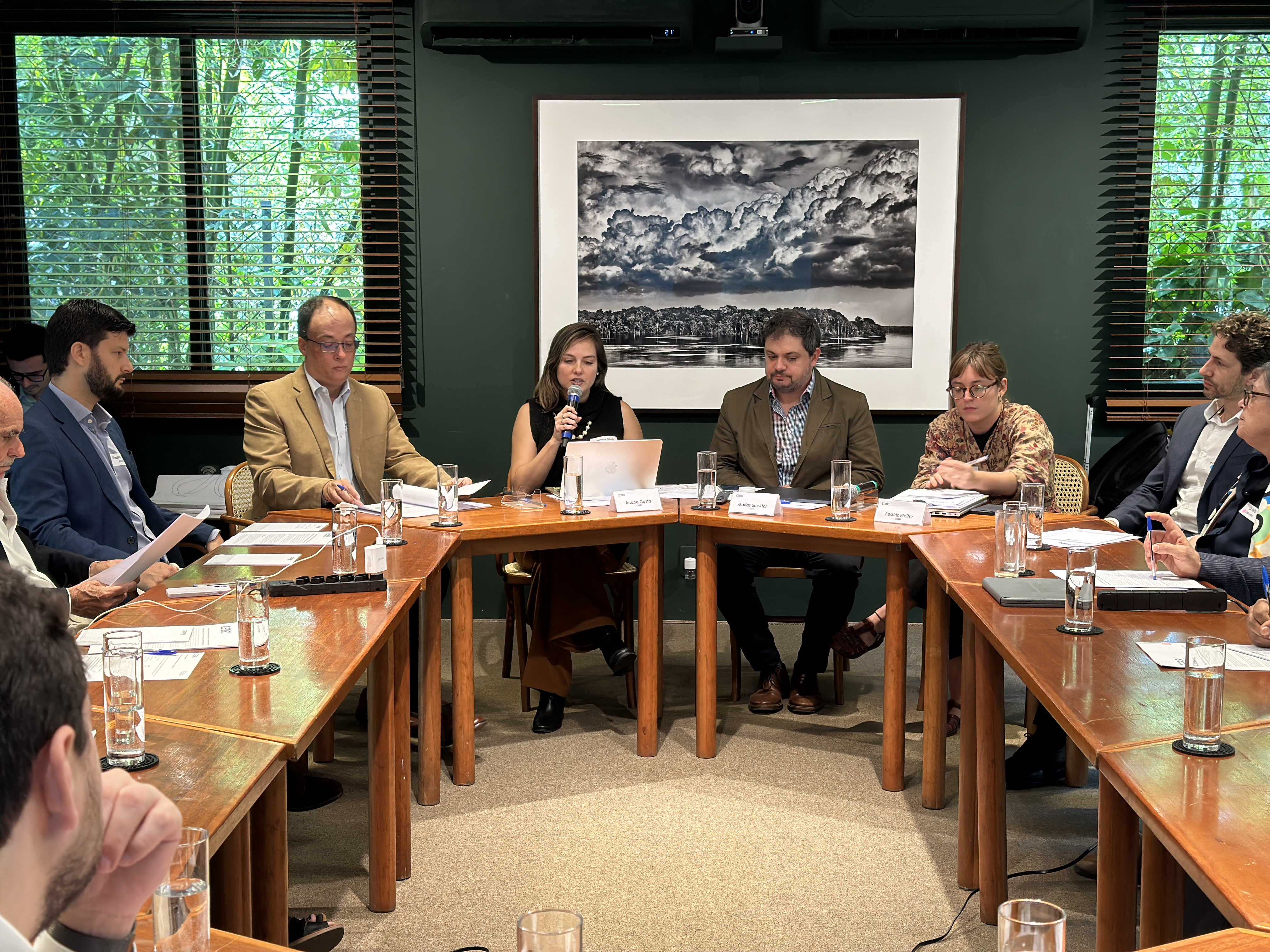CEBRI as a regional interlocutor for the Rockefeller Foundation's Build the Shared Future initiative
- Institutional
- 27 october 2025
The international system is at a turning point, marked by multiple crises, growing fragmentation, and a loss of legitimacy of multilateral institutions. Rising inequalities, environmental degradation, conflicts, food insecurity, and declining trust in democratic institutions highlight the limitations of the 20th-century global governance model.
In response to this scenario, the Rockefeller Foundation launched the initiative Build the Shared Future. The project aims to rethink global governance mechanisms and proposes new models of international cooperation that combine innovation, technology, and local leadership to address contemporary challenges.
A global public opinion survey marked the initiative's launch, offering a snapshot of how the international community views worldwide cooperation and the institutions responsible for tackling today's challenges. Between August 8 and September 10, 2025, 36,405 adults across 34 countries were interviewed, revealing key insights:
- 54% say their lives are affected by events in other countries.
- 61% of Americans believe the U.S. should collaborate on global issues, even if it means compromising some national interests.
- 75% of respondents would support international cooperation if it proved effective in solving global problems.
- Latin America (50%) and MENAT (49%) show the lowest levels of support, indicating greater skepticism about the benefits of international cooperation.
The survey reveals that while support for global cooperation is widespread, it remains fragile. To sustain it, it is essential to demonstrate that international commitments deliver tangible benefits—such as jobs, stability, health, and security. Without visible results, support may quickly erode.
Access the full report: Demanding Results: Global Views on International Cooperation.
CEBRI’s Role in Leading Regional Dialogues on the Future of International Cooperation
The Brazilian Center for International Relations (CEBRI) will serve as the Rockefeller Foundation’s interlocutor for Latin America and the Caribbean, leading a regional process of dialogue and collective construction. Given the region’s limited participation in major global decision-making arenas, CEBRI seeks to articulate a Latin American vision for twenty-first-century international cooperation, reflecting its values and priorities while strengthening the region’s voice in global debates based on the principles of legitimacy, inclusiveness, and effectiveness.
Through a series of regional convenings, CEBRI will bring together representatives from civil society, youth, the private sector, academia, and governments in spaces for listening and debate. The insights collected will be systematized and critically analyzed, identifying both relevant aspects and those requiring adaptation to regional realities.
Throughout the project, complementary publications will be produced to deepen discussions on critical themes for the region. The process will be fully documented, including summaries of debates and the identification of points of convergence and divergence. The outcomes of these dialogues will inform the drafting of a Final Declaration, outlining ten guiding principles for a new model of international cooperation — one that is more legitimate, inclusive, and effective, and better suited to the realities of the twenty-first century.
Building a Shared Future: Latin American and Caribbean Perspectives on International Cooperation in the 21st Century
1st Convening | Rio de Janeiro
On October 24, CEBRI hosted the project's first convening, held in a workshop format that brought together representatives from various sectors of Brazilian society. The initiative aimed to generate inputs for the project's Final Declaration. The event gathered participants from diverse fields,including civil society, youth, the private sector, and academia, to collaboratively identify and map the causes, core issues, and impacts of regional challenges related to the following key areas of international cooperation:
- Promoting cooperation that works for people;
- Justice, inequality, and shared prosperity;
- Trust, institutions, and economic security.
Led by Matias Spektor, Senior Fellow at CEBRI, the discussion emphasized the importance of placing citizens at the center of international policymaking, strengthening transparency and local participation, and treating communication as a strategic pillar for closer, more legitimate, and transformative cooperation.
2nd Convening | São Paulo
On October 29, the project held its second convening during the Southern Voice Conference in São Paulo. The session brought together participants of various nationalities for a plural dialogue on the challenges and opportunities to make international cooperation more effective and transformative — capable of generating real impact on people’s lives.

